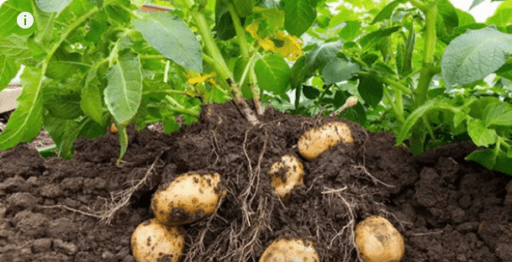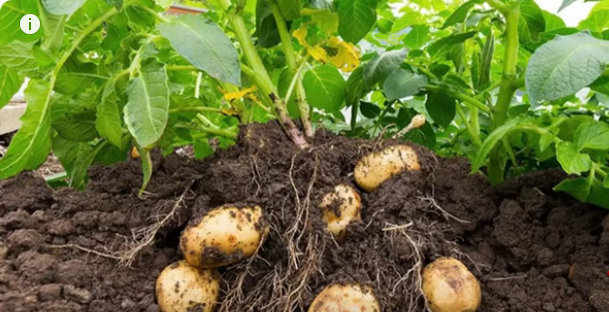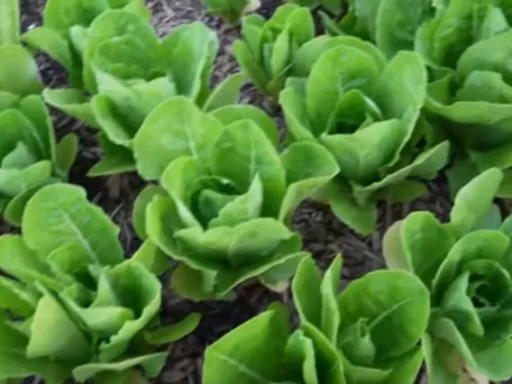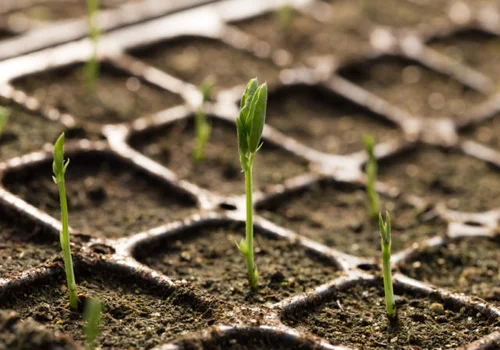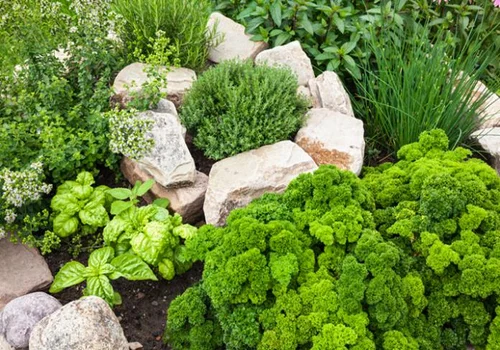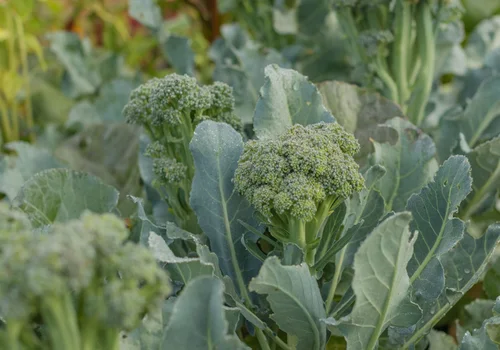Potatoes are a versatile crop that can thrive in various climates when cultivated properly. As we approach the end of winter on the southeastern coast of North Carolina, now is the perfect time to unlock the secrets to growing potatoes and maximizing your harvest. Whether you’re a seasoned gardener or a beginner, here are some essential tips to ensure a successful potato-growing season.
1. Planting Timing: The Key to Success
One of the most important aspects of growing potatoes is planting them at the right time. Potatoes belong to the nightshade family, making them sensitive to frost and freeze. It’s essential to plant them early in the season, about 2-3 weeks before the last frost date. Since the potatoes are buried about six inches underground, they’re protected from light frosts.
The reason for early planting is that potatoes thrive in cooler weather, and waiting too long can expose them to pests and diseases. In hot, humid climates like North Carolina, getting the potatoes into the ground early allows them to grow during the cool season, avoiding the onslaught of fungal and bacterial diseases as well as insect infestations that come with warmer weather.
2. Sourcing High-Quality Potatoes
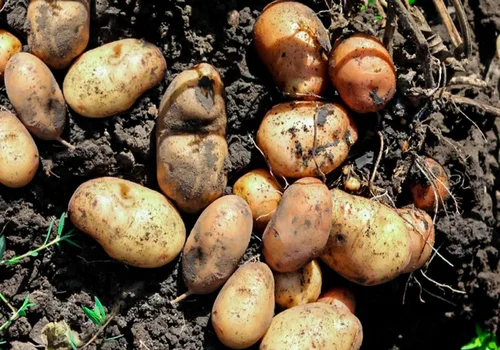
Choosing the right potatoes is critical for a fruitful harvest. Although garden stores often sell seed potatoes, they can be expensive and of questionable quality. Instead, consider buying organic potatoes from a grocery store, which sprout more reliably than conventional ones. You can let them sit in a cool, dark spot in your home for a few weeks until they start sprouting, and then they are ready to plant.
While there’s a debate about whether organic or conventional potatoes are better for growing, the truth is that once a potato has sprouted, it can be planted. However, organic potatoes tend to sprout faster, which may be advantageous if you’re eager to get them into the ground early.
3. Choosing Between Ground and Containers
When it comes to growing potatoes, you have the option of planting them in the ground or in containers. Planting potatoes in the ground generally leads to a larger harvest because the roots have unlimited space to expand. However, container gardening offers more control over soil quality and makes harvesting easier—simply tip the container over to retrieve all the potatoes.
If you have limited space or want to avoid soil disturbance, containers are a great option. However, if you’re looking for maximum yield, growing potatoes directly in the ground might be your best bet.
4. Proper Fertilization for Potatoes
Potatoes are heavy feeders, meaning they require a substantial amount of nutrients to thrive. When fertilizing your potato plants, it’s crucial to focus on phosphorus, potassium, and calcium, which promote strong root development and larger tubers. Nitrogen is less important since potatoes don’t require much vegetative growth.
An organic all-purpose fertilizer, combined with bone meal for added phosphorus and calcium, works well for potato crops. Fertilize the soil before planting and continue feeding your potatoes every two weeks. This consistent nutrient supply will help ensure a bountiful harvest.
5. Hilling Potatoes: Is It Necessary?
Hilling is a gardening practice where soil is mounded around the stems of potato plants as they grow. Some believe this helps produce additional tubers, but the success of hilling can vary depending on the potato variety. While it may not always be necessary, it can be beneficial for certain types of potatoes. Whether you decide to hill your plants or not, ensuring they have enough soil depth for their roots to develop is key to a successful harvest.
Frequently Asked Questions
1. When is the best time to plant potatoes?
The ideal time to plant potatoes is about 2-3 weeks before the last frost of the season, allowing them to root underground while avoiding frost damage.
2. Should I use organic or conventional potatoes for planting?
Organic potatoes are more likely to sprout quickly, making them a better choice for planting. However, once any potato has sprouted, it can be used.
3. Is it better to grow potatoes in the ground or in containers?
Growing potatoes in the ground allows for larger yields, but containers provide better control over soil quality and make harvesting easier.
4. How often should I fertilize my potato plants?
Potatoes need to be fertilized every two weeks to ensure they receive enough nutrients to grow strong tubers.
5. What type of fertilizer is best for potatoes?
A combination of organic all-purpose fertilizer and bone meal, rich in phosphorus and calcium, is ideal for promoting healthy root and tuber development.
6. Can I still plant potatoes if I’ve missed the early planting window?
Yes, but planting later increases the risk of exposure to pests and diseases, especially in hot, humid climates.
7. Is hilling necessary for potato plants?
Hilling may help some potato varieties grow additional tubers, but its effectiveness varies. Providing adequate soil depth is generally more important.

